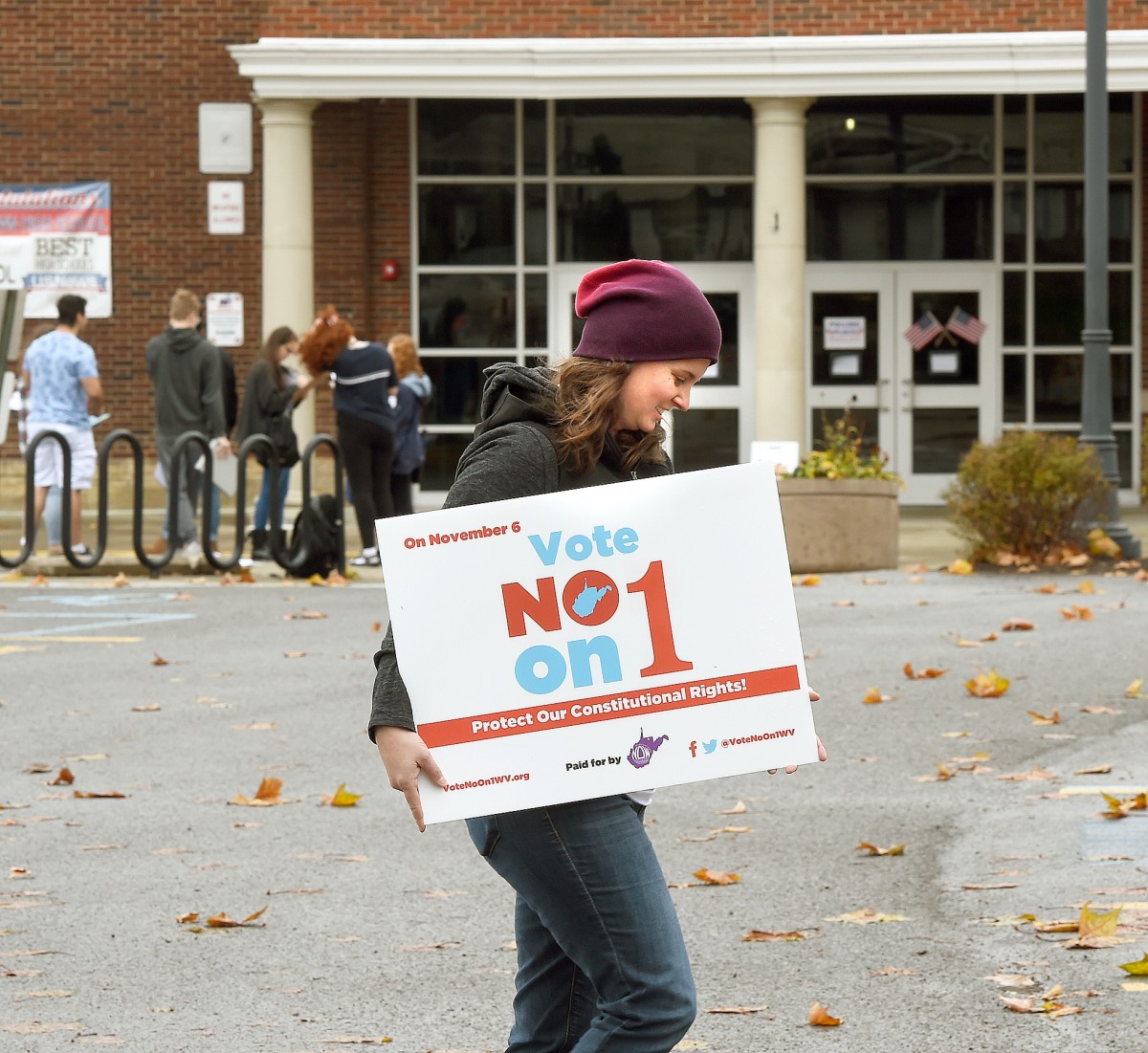CHARLESTON — West Virginia’s agency that oversees Medicaid is already starting to react to Amendment One, which makes the state Constitution neutral on abortion.
The changes being overseen by the agency will affect poor West Virginia women who seek to end pregnancies but who can’t afford to pay for the procedure themselves.
That amounted to 1,560 pregnancy terminations last year, according to state records. It was 1,217 the prior year and 763 the year before that.
Over the past decade, according to agency records, pregnancy termination patients represented two-tenths of one percent of total Medicaid enrollees.
The constitutional amendment passed on Election Day by 19,803 votes. That meant 52 percent of voters were in favor while 48 percent were against.
The amendment states: “Nothing in this Constitution secures or protects a right to abortion or requires funding of abortion.”
The West Virginia Bureau for Medical Services has already issued apublic notice, providing some details about how it will oversee the change.
The agency has concluded that the amendment’s passage puts back into effect a 1993 law that would have limited Medicaid funds paying for pregnancy terminations.
The law, West Virginia Code 9-2-11, remained on the books even after being overturned by a state Supreme Court decision.
That piece of code said, “The Legislature intends that the state’s Medicaid program not provide coverage for abortion on demand and that abortion services be provided only as expressly provided for in this section.”
The law does include protections for instances where the mother’s life is endangered, if the baby has severe defects or is unlikely to live or if there has been rape or incest.
The public notification posted by the West Virginia Bureau for Medical Services makes reference to those exceptions.
So now the agency says it will only reimburse for abortions under three circumstances:
- If the physician’s best judgment indicates there is a medical emergency complicating pregnancy so that immediate abortion is necessary to prevent mother’s death — or for which a delay would gravely imperil the irreversible loss of major bodily function or an equivalent injury to the mother. An independent physician would have to concur with the physician’s clinical judgment.
- Or if, on the physician’s best clinical judgment, there is clear medical evidence that the fetus has severe congenital defects or terminal disease or is not expected to be delivered
- Or if the individual is a victim of incest or the individual is a victim of rape when the rape is reported to a law-enforcement agency.
Those are significant changes to Bureau for Medical Services procedures from what it’s done the past 25 years.
Over that time, physicians have signed off on forms to indicate abortions being paid out of state Medicaid funds are medically-necessary.
West Virginia lawmakers asked about the changes Sunday evening during a meeting of the Joint Government and Finance Committee, which provides oversight to a variety of state agencies.
“Is that form going to change, or is the process going to change?” asked House Judiciary Chairman John Shott, R-Mercer.
Tony Atkins, deputy commissioner for the Bureau of Medical Services, fielded such questions, referring to the public notice that has been posted.
“It is going to take some time to implement and to get the correct, changed forms in place,” Atkins said. “But we are moving to get that implemented as soon as possible.”
There was a broader conversation about whether the changes from the amendment are legally in effect already or whether the election would need to be certified first.
“We believe it’s effective upon passage,” Atkins said. “There could be some splitting of legal hairs. We believe the effective date was when the amendment was passed.”




